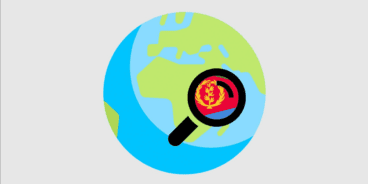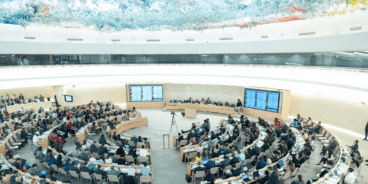
Joint Letter on extending the mandate of the Special Rapporteur on Eritrea
To Permanent Representatives of Member and Observer States of the United Nations Human Rights
Council
Excellencies,
At the 41st session of the UN Human Rights Council (24 June-12 July 2019), the Council extended a hand to the Eritrean Government. While renewing the mandate of the Special Rapporteur on the country, it signalled its willingness to offer Eritrea a constructive way forward, in particular by shifting the resolution from agenda item 4 to item 2.
While welcoming the adoption of Council resolution 41/1, and in particular the renewal of the mandate, many non-governmental organisations cautioned that any shifts in the Council’s approach should reflect corresponding changes in the human rights situation on the ground.
Regrettably, one year later, we, the undersigned non-governmental organisations, recall that the concerns expressed in a joint letter published last year remain valid, for the reasons set out below. Ahead of the 44th session of the Council (currently scheduled to begin in June 2020), we urge you to support the adoption of a resolution extending the mandate of the Special Rapporteur on the human rights situation in Eritrea.
As Eritrea has entered the second year of its Council membership term, its domestic human rights situation remains dire. A free and independent press continues to be absent from the country and 16 journalists remain in detention without trial, many since 2001. Impunity for past and ongoing human rights violations is widespread. Violations continue unabated, including arbitrary arrests and incommunicado detention, violations of the rights to a fair trial, access to justice and due process, enforced disappearances, lack of information on the fate or whereabouts of disappeared persons, violations of women’s and girls’ rights, and severe restrictions on the enjoyment of the rights to freedom of expression, peaceful assembly, association, and religion or belief. Secondary school students, some still children, continue to be conscripted in their thousands each year into the country’s abusive national service system. Indefinite national service, involving torture, sexual violence and forced labour continues; thousands remain in open-ended conscription, sometimes for as long as ten years or more, despite the 2018 peace accord with Ethiopia.
In resolution 38/15 (6 July 2018), the Council invited the Special Rapporteur to “assess and report on the situation of human rights and the engagement and cooperation of the Government of Eritrea with the Human Rights Council and its mechanisms, as well as with the Office of the High Commissioner [OHCHR], and, where feasible, to develop benchmarks for progress in improving the situation of human rights and a time-bound plan of action for their implementation.” The Council should ensure adequate follow-up by allowing the Special Rapporteur to pursue her work and OHCHR to deepen its engagement with the Eritrean Government.
As a Council member, Eritrea has an obligation to “uphold the highest standards in the promotion and protection of human rights” and to “fully cooperate with the Council.” However, during the Council’s 43rd session, in February 2020, both the Special Rapporteur, Ms. Daniela Kravetz, and the UN High Commissioner for Human Rights, Ms. Michelle Bachelet, reported that no concrete evidence of progress in Eritrea’s human rights situation, including against the benchmarks, could be reported.
By streamlining its approach and adopting resolution 41/1 under its item 2, the Council offered a way forward for human rights reform in Eritrea. In March 2019, Eritrea took an initial step by meeting with the Special Rapporteur in Geneva. More recently, in February 2020, a human rights dialogue took place between the Government and the Committee on the Elimination of Discrimination Against Women (CEDAW) in a more constructive spirit than during Eritrea’s 2019 review by the Human Rights Committee. Unfortunately, despite the window of opportunity provided by Eritrea’s CEDAW review and the Eritrean Ambassador indicating, at the Council’s 43rd session, that his country was committed to confidence-building measures and technical cooperation, Eritrea refuses to cooperate with the Special Rapporteur, and recently launched yet another unwarranted attack on her and her mandate. The Government continues to reject findings of ongoing grave violations, as well as calls for reform, and human rights-based recommendations, including in relation to the Covid-19 crisis.
The Council should urge Eritrea to make progress towards meeting its membership obligations and to engage with the UN human rights system constructively. It should not reward non-cooperation by, but rather maintain scrutiny of, one of its members. We believe that a technical rollover of the Special Rapporteur’s mandate, under the same item, would contribute to this aim.
At its upcoming 44th session, the Council should adopt a resolution: (a) Extending the mandate of the Special Rapporteur for a further year; (b) Urging Eritrea to cooperate fully with the Special Rapporteur by granting her access to the country, in accordance with its obligations as a Council member; (c) Calling on Eritrea to develop an implementation plan to meet the progress benchmarks, in consultation with the Special Rapporteur and OHCHR; (d) Requesting OHCHR to present an oral update on Eritrea at the Council’s 46th session; and (e) Requesting the Special Rapporteur to present an oral update at the Council’s 46th session in an interactive dialogue, and to present a report on the implementation of the mandate at the Council’s 47th session and to the General Assembly at its 76th session.
We thank you for your attention to these pressing issues and stand ready to provide your delegation with further information as needed.
Sincerely,
- African Centre for Democracy and Human Rights Studies
- AfricanDefenders (the Pan-African Human Rights Defenders Network)
- Amnesty International
- Cairo Institute for Human Rights Studies
- Center for Civil Liberties (Ukraine)
- CIVICUS
- Civil Rights Defenders
- Committee to Protect Journalists
- CSW (Christian Solidarity Worldwide)
- DefendDefenders (East and Horn of Africa Human Rights Defenders Project)
- Eritrean Law Society (ELS)
- Eritrean Movement for Democracy and Human Rights (EMDHR)
- Geneva for Human Rights / Genève pour les Droits de l’Homme
- Global Centre for the Responsibility to Protect
- Human Rights Concern – Eritrea (HRCE)
- Human Rights Watch
- International Service for Human Rights
- Network of Eritrean Women (NEW)
- Network of Human Rights Defenders in Central Africa / Réseau des Défenseurs des Droits Humains en Afrique Centrale (REDHAC)
- One Day Seyoum
- Robert F. Kennedy Human Rights
- Southern Africa Human Rights Defenders Network (SAHRDN)
- West African Human Rights Defenders Network / Réseau Ouest Africain des Défenseurs desDroits Humains (ROADDH/WAHRDN)
- World Organisation Against Torture (OMCT)
Related Content


